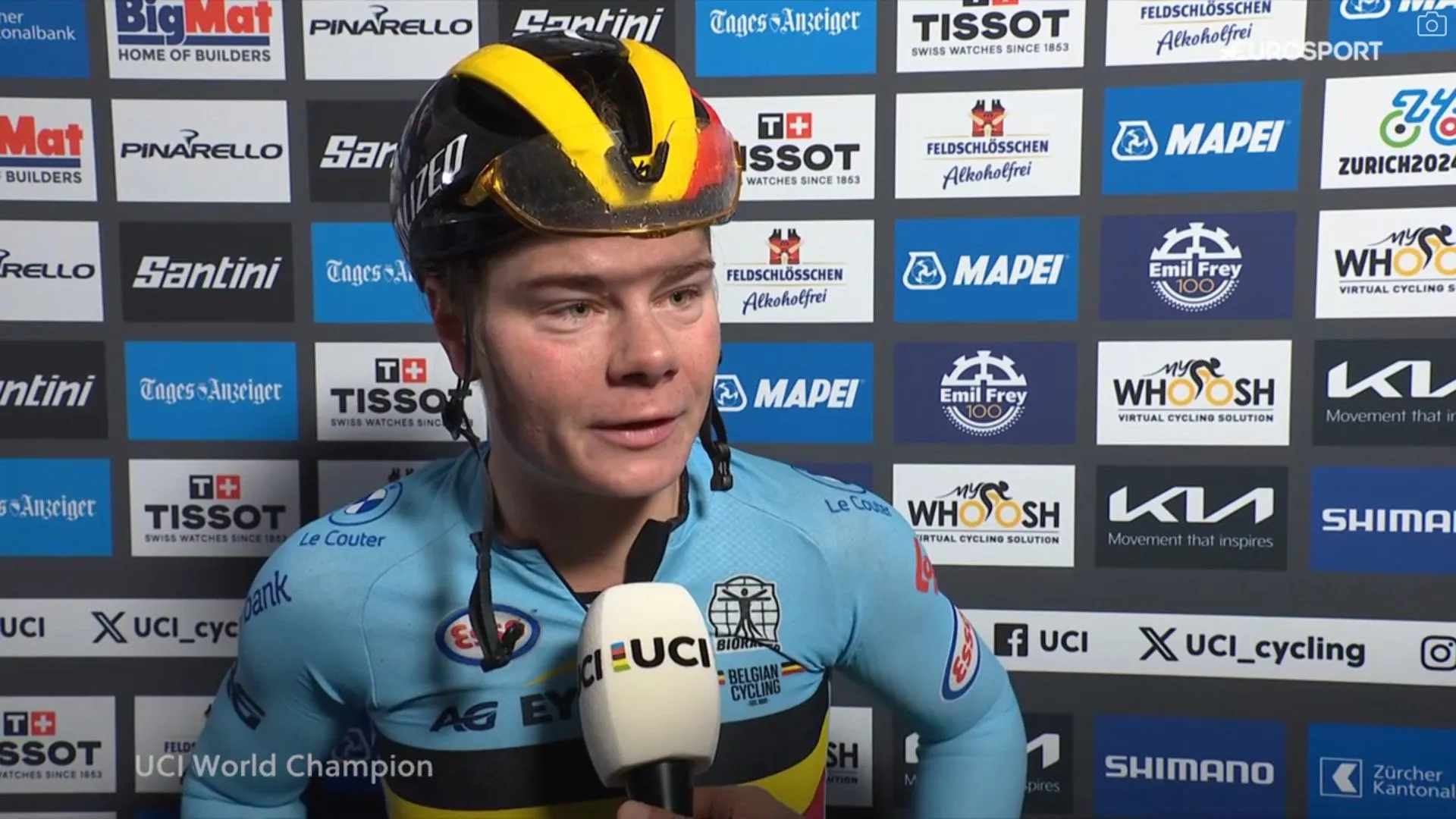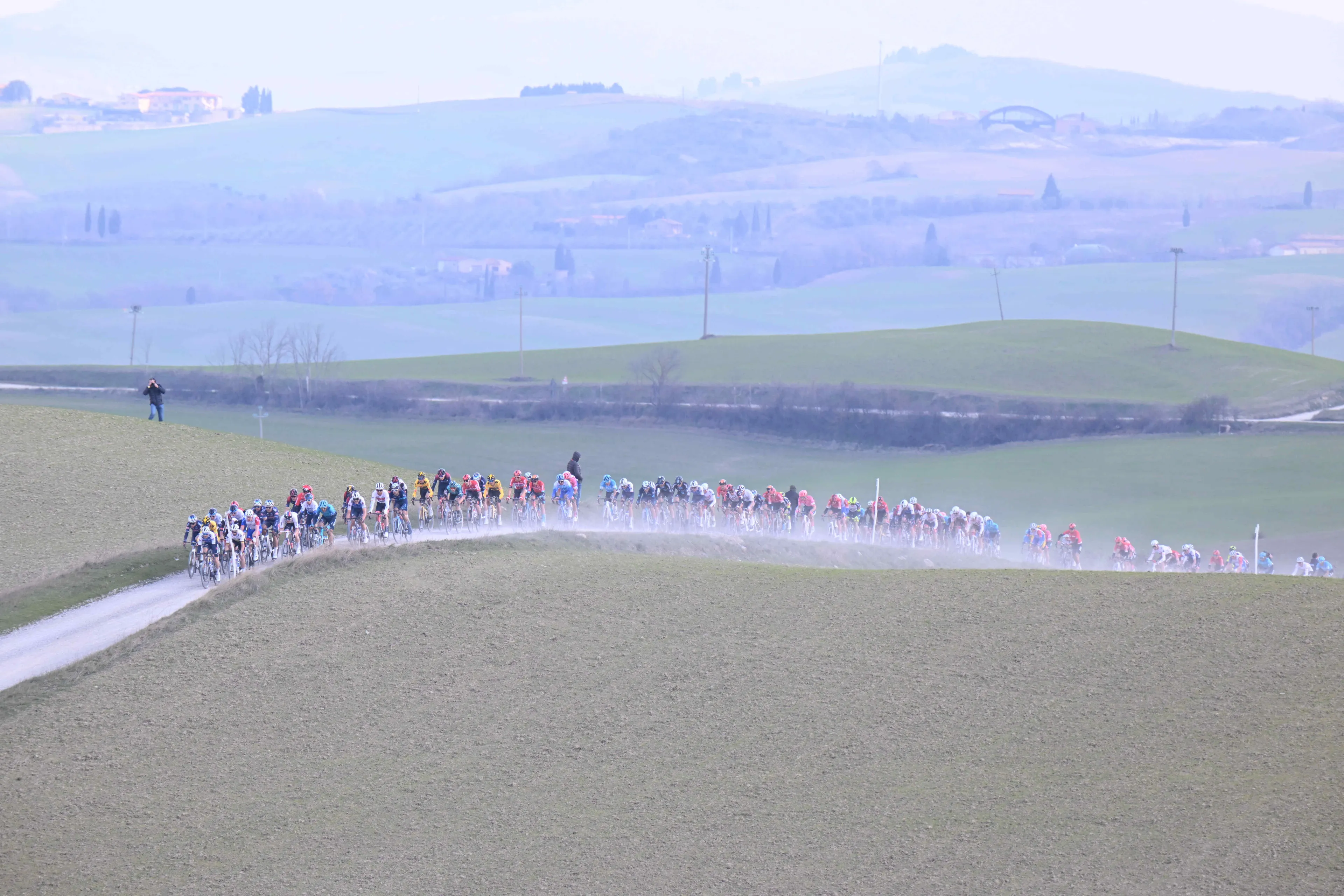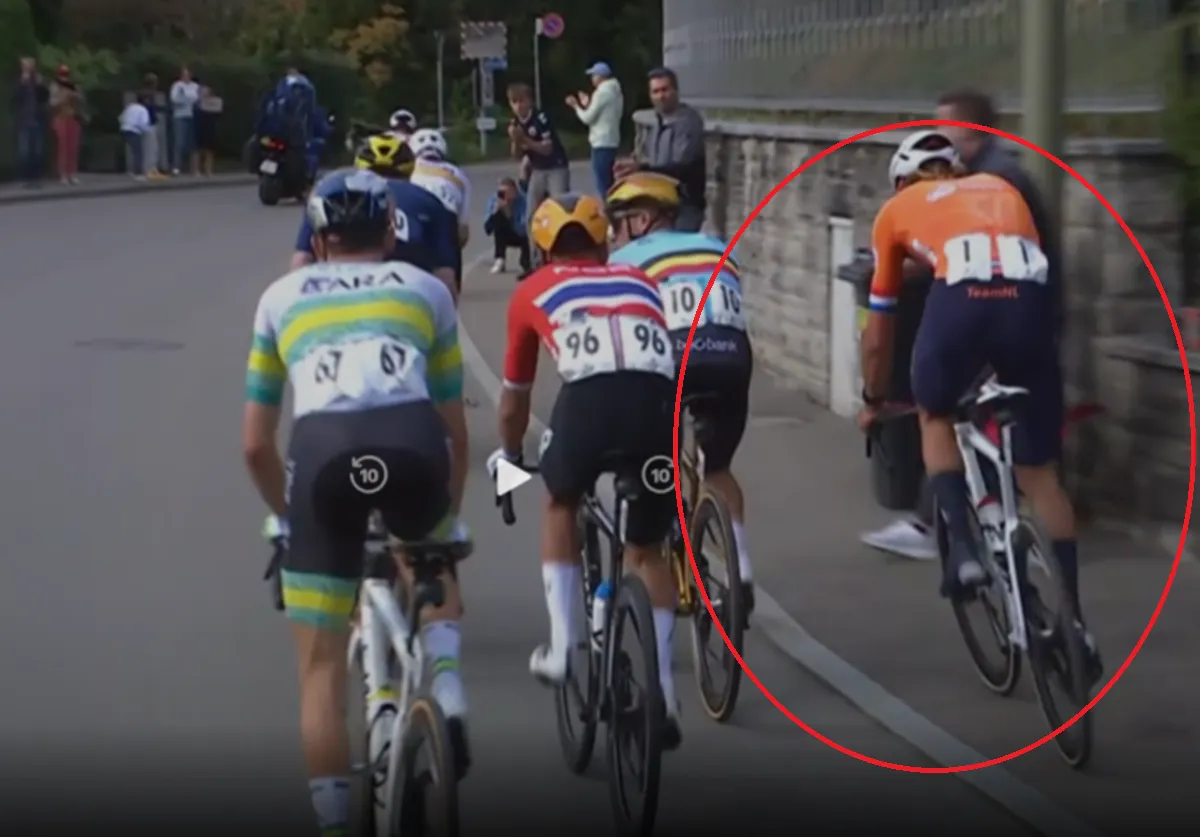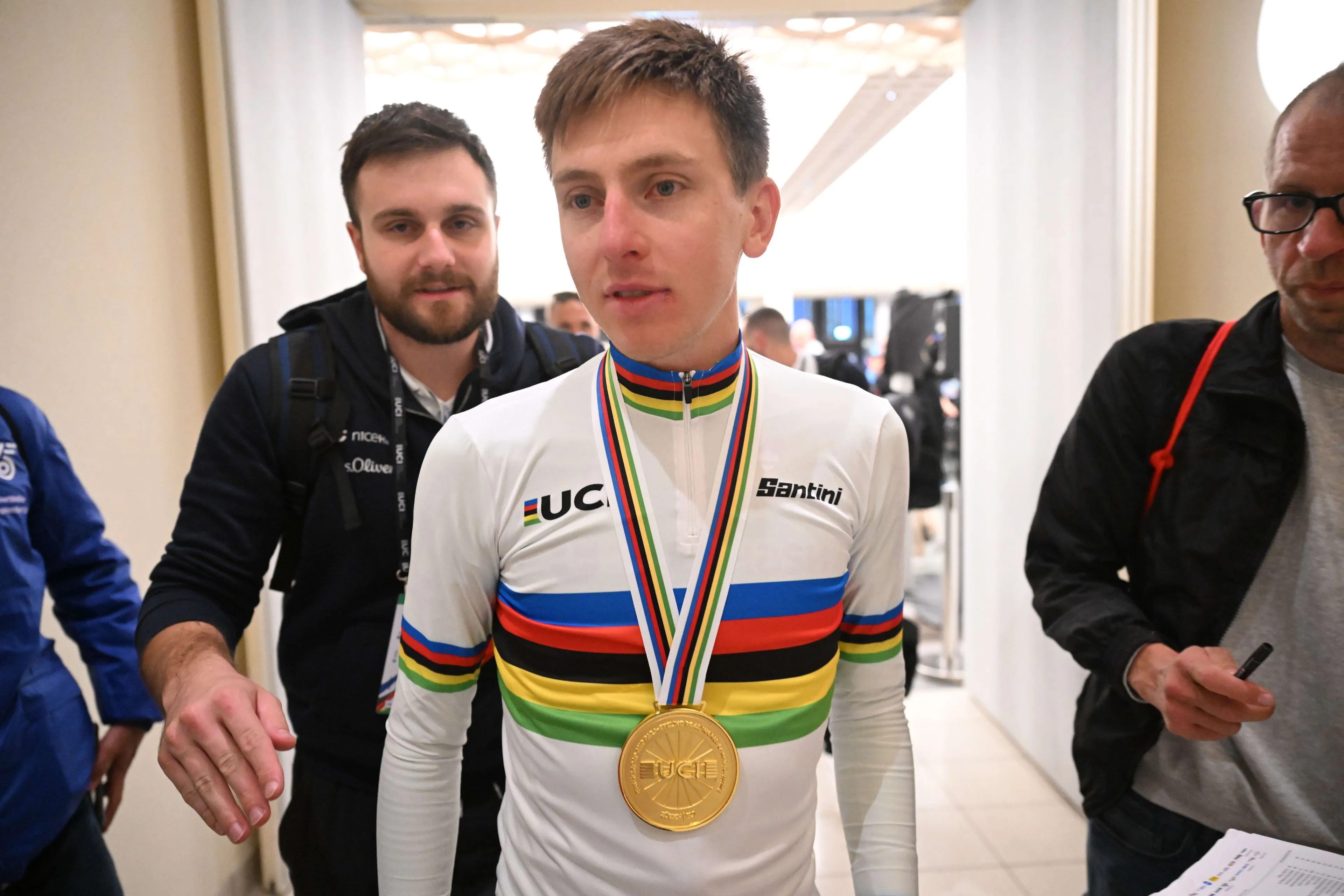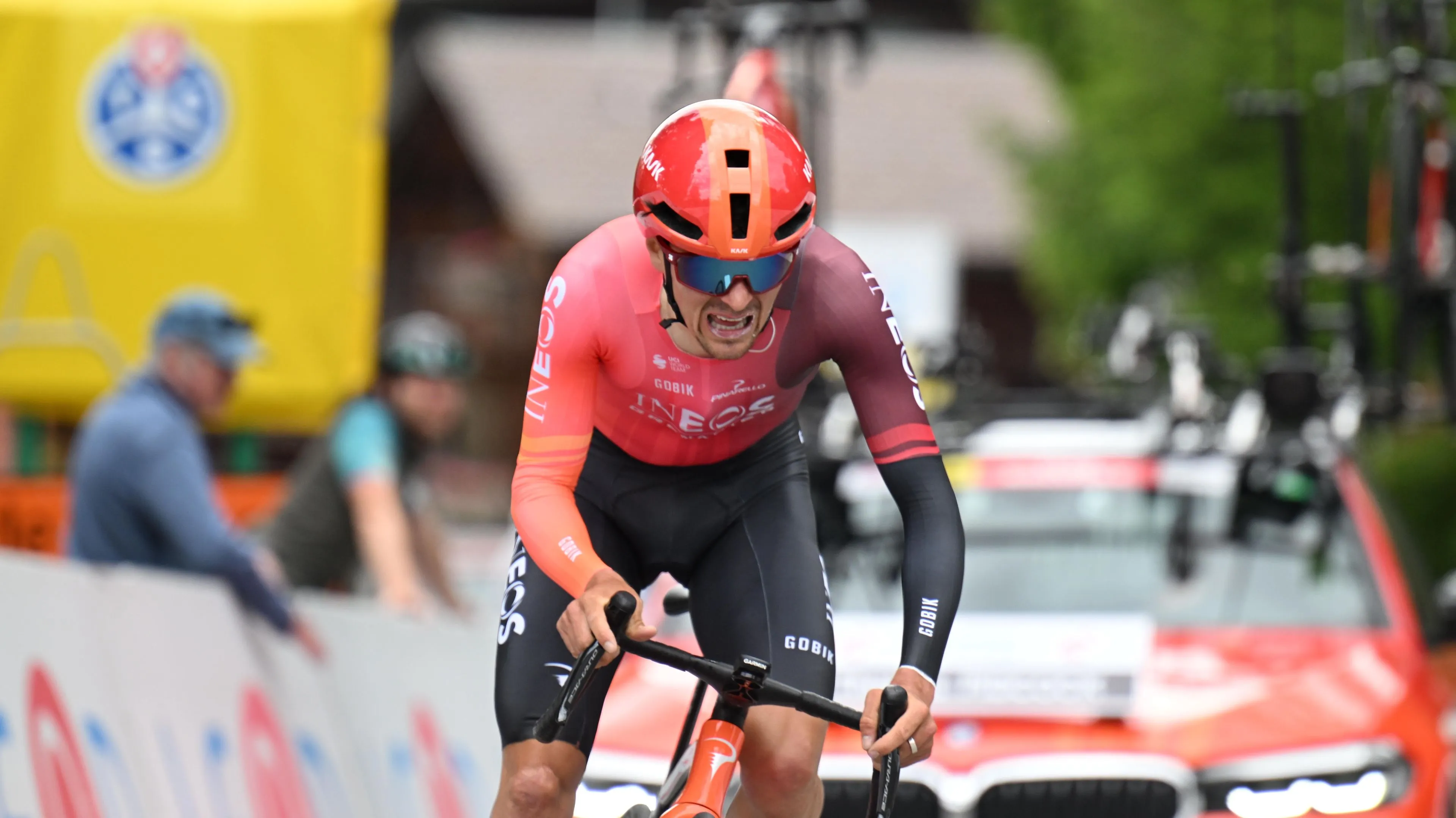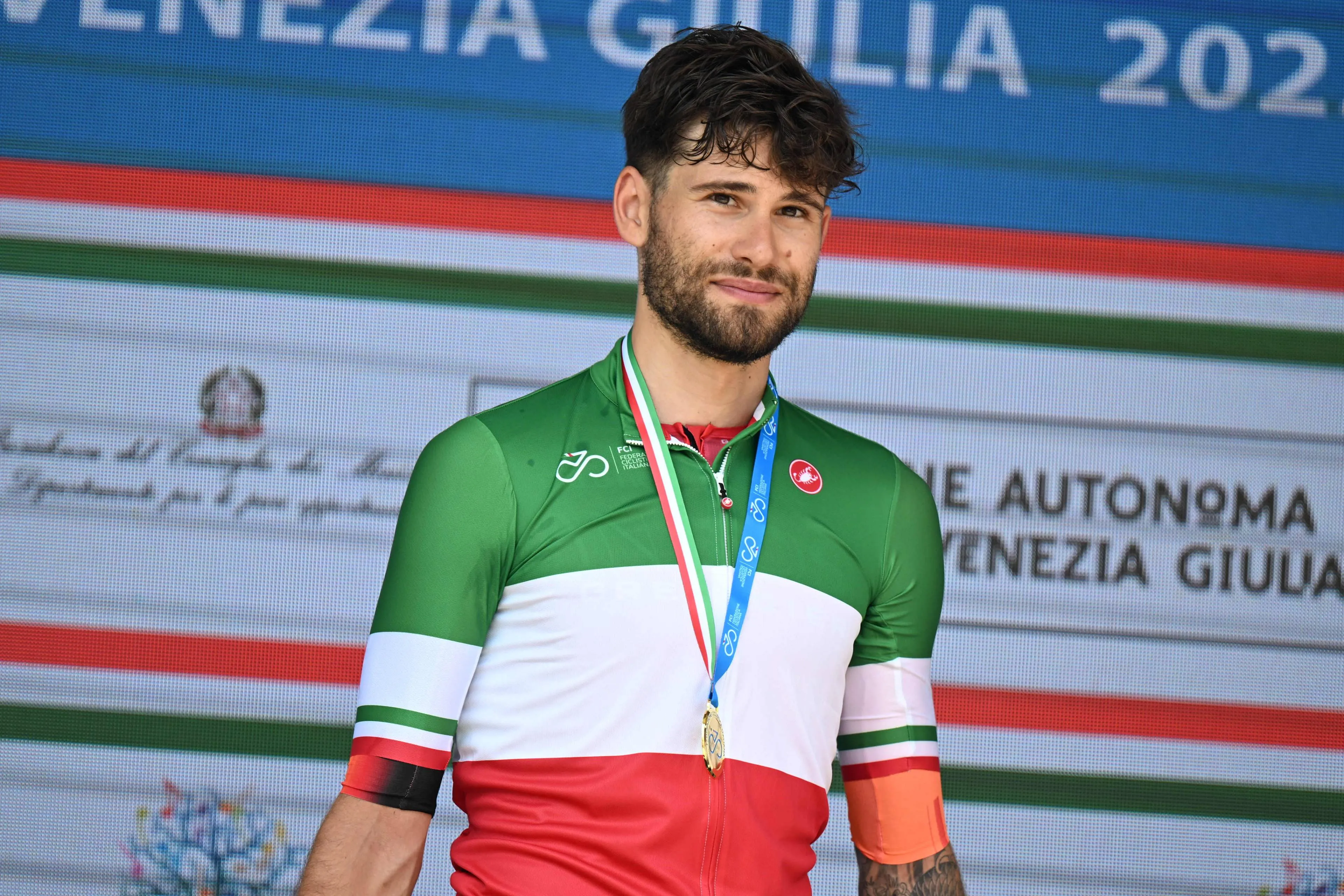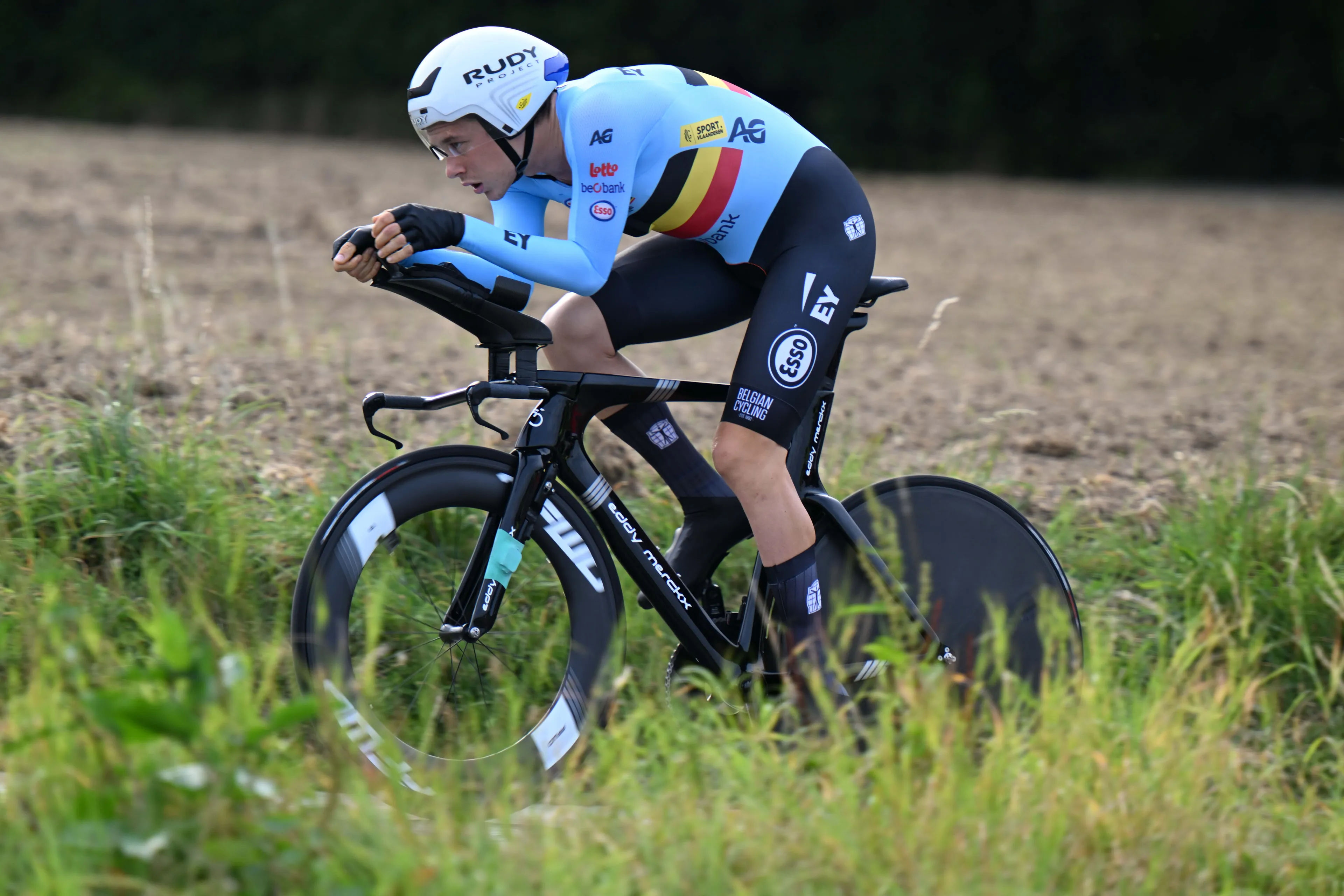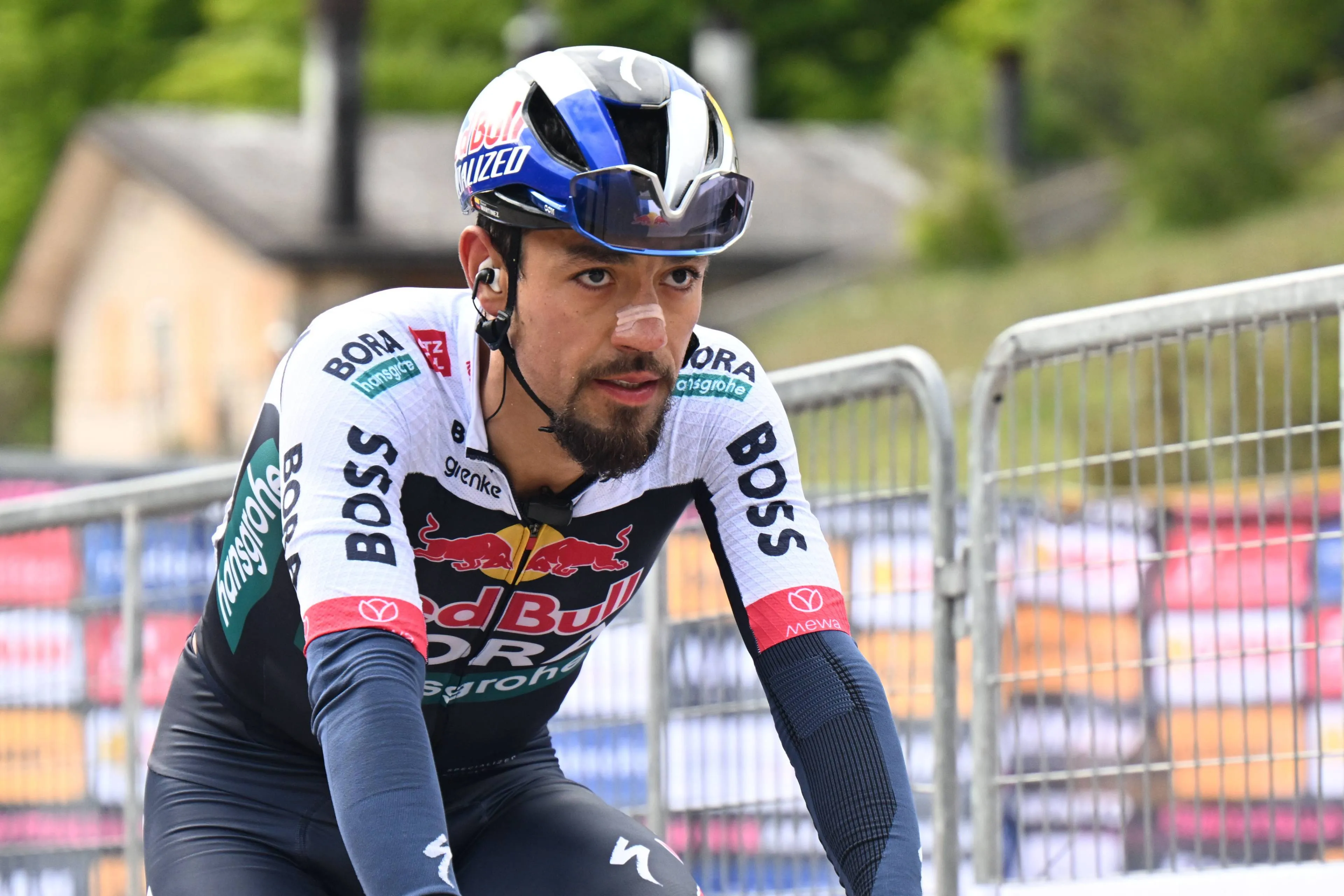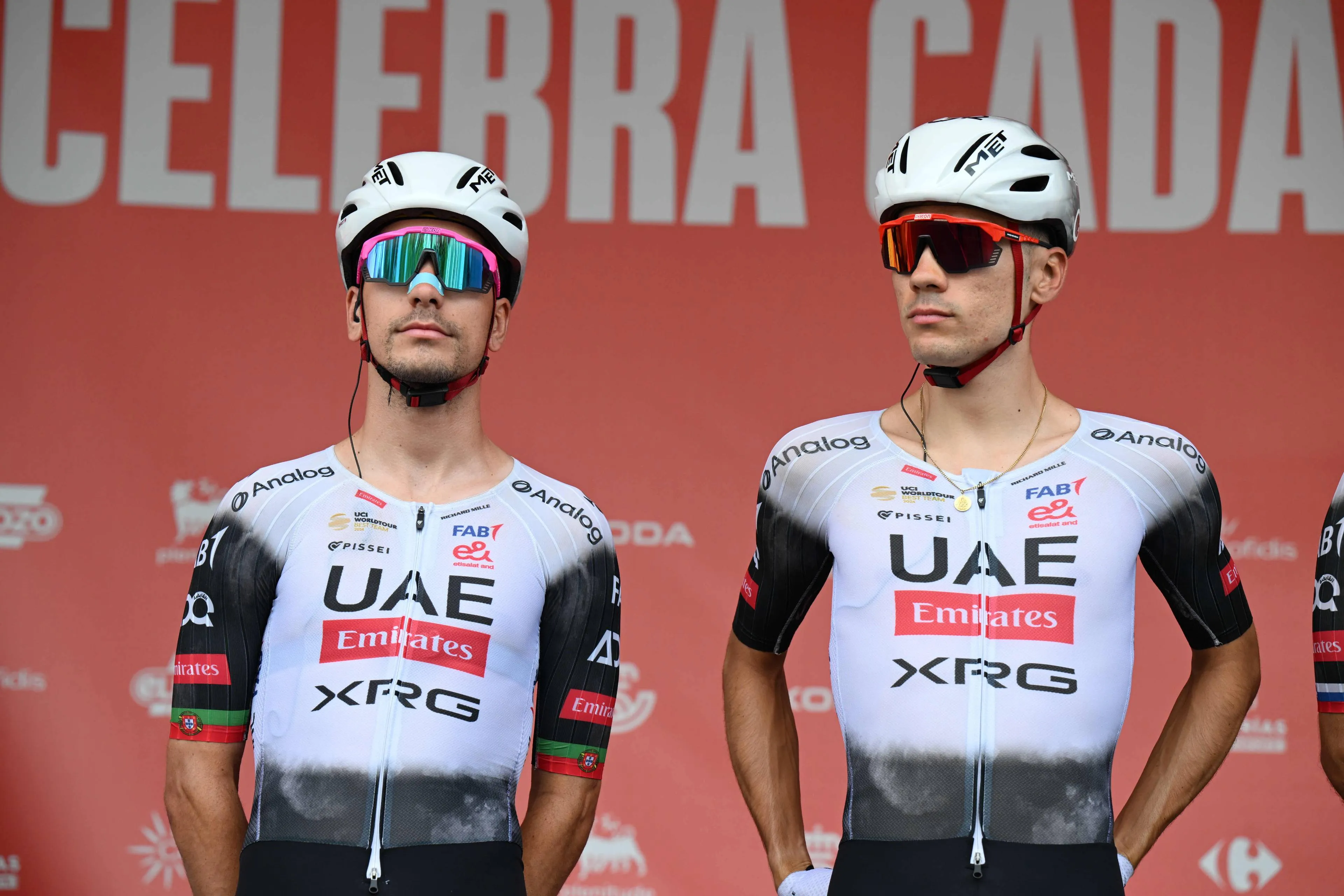From Formula 1 to the Gravel World Championships - Valtteri Bottas makes the switch
GravelSunday, 06 October 2024 at 10:53

At 35 years old, Finnish racing driver Valtteri Bottas is no
stranger to the world of motorsport, having raced for some of the most iconic
teams in Formula 1, including Mercedes, where he clinched 10 Grand Prix
victories. His most recent win came at the Turkish Grand Prix in 2021. However,
Bottas has broadened his horizons beyond the roaring engines of F1 and into the
world of competitive cycling, specifically gravel racing.
This weekend, Bottas will be trading the tarmac for the
rough, unpredictable terrain of Belgium as he competes in the third UCI Gravel
World Championships. What makes this event unique is the blend of professional
cyclists and enthusiastic amateurs racing together, with names like Mathieu van
der Poel and Matej Mohoric gracing the starting line alongside Bottas.
Read also
How did Bottas qualify for the World Championships?
At the close of 2023, Bottas made his cycling ambitions
clear: he wanted to qualify for the 2024 UCI Gravel World Championships, to be
held in Belgium’s renowned cycling heartland, Flanders. On April 27, 2024, his
dream became a reality as he secured his spot through a qualifying race in
South Africa.
The Swartberg 100, a grueling gravel event in South Africa,
served as Bottas’ ticket to the world championships. The race is part of the
UCI Gravel World Series, where the top 25% of finishers in each category earn a
place in the world championship. Bottas finished sixth in his age group, an
impressive feat in a race that saw only 24 starters in his category. His
placement narrowly earned him the last available qualifying spot, but a place
in the race is all he needed.
The qualification wasn’t just about the numbers; it marked a
significant milestone for Bottas, who has steadily developed a close connection
to the cycling world. A regular fixture in various amateur and pro-am races,
he’s built a reputation as not just a F1 star who enjoys cycling, but as a
genuinely passionate and capable competitor in the world of gravel racing.
Read also
The Road to Belgium
Belgium’s Flanders region, rich in cycling history, offers
the perfect backdrop for the UCI Gravel World Championships. Known for its
legendary cobbled classics like the Tour of Flanders, this region is synonymous
with tough, passionate racing, and its rugged terrain will test even the most
seasoned riders.
This year’s course promises to be a punishing test of
endurance, bike-handling skills, and tactical acumen. The men's race spans 182 kilometres
over varied terrain, from technical gravel sections to rolling hills. The
women's course is equally demanding, covering 133 kilometres along a similar
route between Halle and Leuven.
Belgium is a country that breathes cycling, where racing is
deeply woven into the fabric of life. Flanders, in particular, is celebrated
for its difficult roads, passionate fans, and punishing conditions. It’s a
place where bike racing isn't just a sport; it’s an integral part of the
culture.
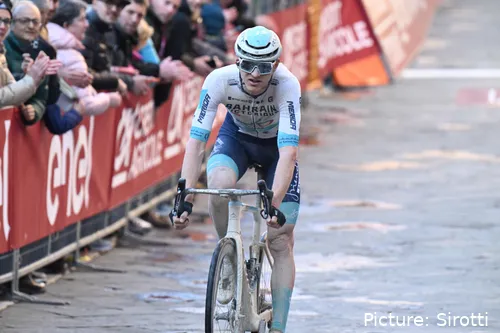
Matej Mohoric is the defending UCI Gravel World Champion
For Bottas, racing in this environment will be an entirely
new challenge. Unlike the closed circuits of Formula 1, gravel racing is raw,
unstructured, and often chaotic. It requires quick decision-making, a solid
understanding of bike mechanics, and a deep reservoir of endurance. For someone
who thrives on pushing limits, the unpredictability of gravel racing may be
what draws Bottas to the sport.
While many see Valtteri Bottas as a Formula 1 driver with a
side hobby, his involvement in cycling runs deep. His passion for the sport
goes beyond just racing; Bottas is also a co-founder and partner of FNLD GRVL,
a premier gravel cycling event held in Lahti, Finland. Co-organised with his
partner Tiffany Cromwell, a professional cyclist with Canyon-SRAM, FNLD GRVL
draws hundreds of gravel riders each year.
Bottas' relationship with Canyon, one of the leading
manufacturers in high-performance cycling, is another key piece of his cycling
journey. As a partner and brand ambassador, Bottas has become a familiar face
in the cycling world, and Canyon has helped facilitate his transition from
motorsport to cycling. His collaboration with Canyon gives him access to
top-tier equipment, an advantage in races where technical precision and high
performance are crucial.
Read also
The Rise of Gravel Racing
Gravel racing, while still relatively young as an official discipline,
has grown exponentially in popularity over the past few years. Its allure lies
in its accessibility and inclusiveness, as professional cyclists, amateurs, and
weekend warriors all line up together, sharing the same courses and challenges.
But with this rise in prominence comes inevitable friction, particularly
between gravel’s purists and the influx of professional road racers entering
the discipline.
For some, the appeal of gravel racing lies in its grassroots
origins, where races were casual, inclusive, and free of the high-stakes,
high-pressure atmosphere of professional road cycling. The growing
participation of world-class road cyclists like Mathieu van der Poel and Matej
Mohoric, and now Formula 1’s Valtteri Bottas, has raised concerns among some
gravel enthusiasts. Critics argue that the influx of professional riders could
dilute the sport’s identity, turning it into yet another extension of road racing
with its corporate sponsorships and elite athletes.
Read also
On the other hand, many believe that the presence of such
high-profile athletes only serves to elevate the sport, bringing much-needed
attention and funding. Gravel racing has already benefitted from the increased
visibility, with races attracting larger audiences and sponsors.
Still, the balance between keeping gravel racing authentic
and embracing its growth is delicate. Some purists worry that the commercialisation
of the sport, particularly as more road professionals make the switch, could
kill the very spirit that drew people to gravel in the first place. Others
argue that the egalitarian nature of gravel racing, where everyone from
amateurs to pros can race on the same course, will always keep the sport true
to its roots.
For Bottas, this debate is likely peripheral. His focus
remains on racing and competing, whether that’s behind the wheel of a Formula 1
car or on the rugged roads of a gravel race. His foray into gravel racing adds
a new dimension to the sport’s evolving narrative. As a high-profile athlete
with a significant following, Bottas brings a unique spotlight to gravel
racing, potentially attracting a new audience of fans who may not have
considered the sport before.
Read also
In many ways, Bottas represents a bridge between the worlds
of elite motorsport and grassroots cycling. His passion for both is evident,
and his success in each field shows that the qualities that make a world-class
competitor, determination, focus, and an unyielding desire to improve, are
universal.
This weekend, as Bottas takes on the challenging roads of
Belgium in the UCI Gravel World Championships, he will be up against some of
the best gravel racers in the world. But win or lose, his participation alone
is a testament to the ever-expanding reach and appeal of gravel racing.
Whether this crossover of high-profile athletes like Bottas
helps or hinders the sport in the long run remains to be seen. But for now, the
Finn is simply enjoying the ride.
claps 2visitors 2
Just in
Popular news
Latest comments
- I was going to post the same comment. He just can’t catch a break.Pedalmasher20-02-2026
- Totally agree. This kid has a bright future.Pedalmasher20-02-2026
- The thing is, he never has to worry about his career because he can spend the rest of his life living rent-free in your head.antipodeanpedalfan20-02-2026
- That's true, but you can't count out a resurgence from him later like Vingegaard did in 2025 (although he was 10 seconds behind, not 30)
 Rafionain-Glas19-02-2026
Rafionain-Glas19-02-2026 - Lipowitz ddn't really keep up to the big boys today either.....mobk19-02-2026
- Yes, the guy is no fluke. Even if he fails to improve over the next 15 years he’ll do damage. That young blood is going to keep the establishment working hard.Mistermaumau19-02-2026
- This excuse is harmless, just quaint and amusing. The excuse I really disliked was when he accused a mechanic of improperly adjusting his saddle, endangering the mechanic's job: blaming others for your own limitations is a serious matter.
 maria2024202419-02-2026
maria2024202419-02-2026 - ok so this is impressive - I trashed this guy all winter, get a pro win before the anointing. against a quality field. And Onley and Riccitello look good too. fun to see young blood.mij19-02-2026
- Minor flaws.... thats like suggesting Genghis Khan was a bit aggressive with other countriesslappers6619-02-2026
- Then you carry on if that's what makes you happyslappers6619-02-2026
Loading
Write a comment
